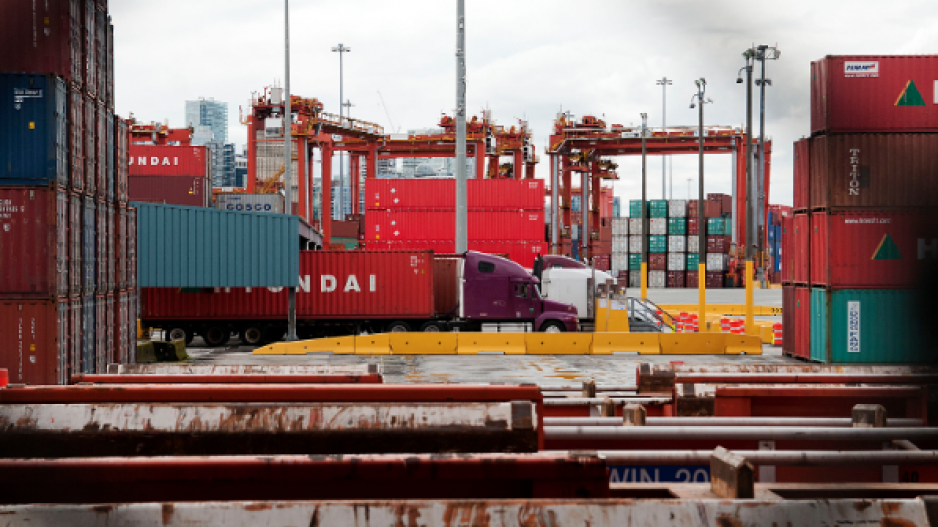The union that represents part of Port Metro Vancouver’s container trucking fleet is calling for a newly-appointed trucking commissioner to step down because of a perception he is biased.
But Andy Smith says that’s not going to happen.
“I took this position with a lot of misgivings but I’m committed to make it work,” Smith told Business in Vancouver.
“My track record with solving problems with trade unions and other parties is a good one.”
Smith is currently the president of the BC Maritime Employers Association (BCMEA), representing container terminals and shipping companies. He was appointed container trucking commissioner by the Ministry of Transportation on February 3. He intends to keep both positions.
Unifor, which represents around 400 container truckers, says Smith’s position as negotiator for port employers in labour negotiations makes him a poor candidate for the job.
"Now you've got the head of the [association] that negotiates for that group in charge of issues to do with truckers,” McGarrigle told BIV on February 4.
“How can you represent the interests of those employers … you've got the fox in charge of the henhouse."
But Smith said his track record should speak for itself.
“If it ever did come to the point where something that I thought was the best solution for the port, the best solution for the trucking companies and truckers, and the single roadblock to that were my container terminal operators," Smith said, "and I was put in the position where I had to act or not — well I guess that would be my last day as commissioner.”
The container trucking system has recently gone through huge upheaval. Following a March 2014 trucking strike that hobbled port operations, truckers, Port Metro Vancouver and the provincial and federal governments agreed on a plan which included raising trucking rates, cutting back on the number of truck licenses to access the port and putting in place the trucking commissioner.
It was generally agreed that there were too many trucks in the system competing for not enough work, leading to wage undercutting.
The system was put in place in early February. However trucking companies immediately called foul, saying that many established trucking companies were not given any licenses, effectively putting them out of businesses. It's estimated that around 600 people employed in the trucking sector as drivers, dispatchers and administrators are now out of a job.
A group of trucking companies filed a lawsuit against Port Metro Vancouver on February 11, arguing that the way the process was put in place was “egregiously unfair,” in part because it did not include clear information about the new rules or an appeals process.
Smith said he has sympathy for the truckers and trucking companies who are now left without work. Port Metro Vancouver implemented the truck license system change just before Smith was appointed commissioner. He agreed it would have been more “logical” if he had been in charge of the transition, as his office is meant to be responsible for the container truck fleet.
“You have a large number of people in Canada’s Indo-Canadian community who were involved in the trucking business who have been dealt a significant negative economic blow,” Smith said, referring owner-operator truckers, many of whom were involved in the March 2014 labour stoppage.
“And in the middle you have truckers who got licenses in the last tranche of license-giving by the port, and you have a number of very legitimate businesses who’ve been in business and been squeaky-clean for 20 or 30 years [who didn’t get licenses].”
He now says he is revisiting some of the decisions that were made, but warned that doesn’t mean trucking companies who lost their port licenses will get them back. He has met with truckers and trucking companies and plans to create an advisory board. He said he has also been trying to set up a meeting with the unions who represent truckers.
“There are some specific areas of concern that I have around dedicated drayage companies, for example in the grain, pulse and bean business, some in the specialty forestry hauling business, which I think deserve a second look.”
The biggest problem with the port right now, Smith said, is the complexity of what he believes should be a relatively straightforward business.
“This issue, which is a simple materials handling and supply chain issue, has become this amazingly complicated cultural, social, economic, licensing, regulatory mess,” he said. “It’s really difficult for any one person to comprehend where the edges are."




